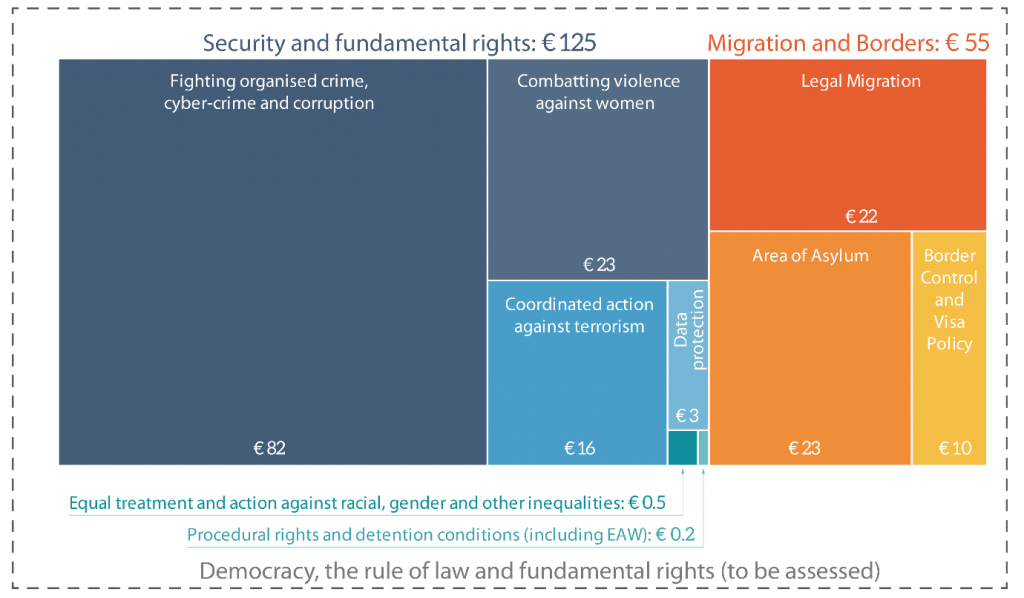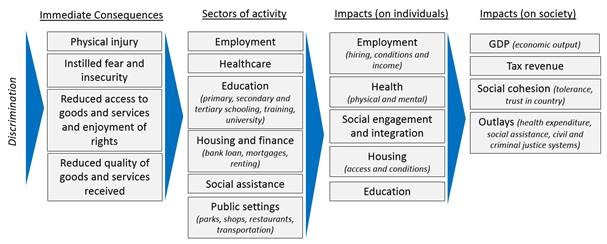Written by Wouter van Ballegooij,

Since the entry into force of the Treaty of Amsterdam in 1999, the EU offers its citizens an area of freedom, security and justice (AFSJ). In this area, the free movement of persons should be ensured, in conjunction with appropriate measures with respect to external border controls, asylum and migration, as well as preventing and combating crime. The European Parliament has gradually acquired equal legislative powers with the Council of Ministers, in an area that was previously intergovernmental. This contributes to better law-making, trust and legitimacy in the area of justice and home affairs. The policy agenda in the area of migration and security was, however, fundamentally reshaped following the rapid rise in the number of asylum seekers and irregular migrants arriving in the EU in 2015, and a string of terrorist attacks. Despite these challenges, surveys show that citizens expect the EU and its Member States to deliver an AFSJ, notably in the area of free movement, immigration and the fight against terrorism.
In October 2016, the European Parliament’s Civil Liberties, Justice and Home Affairs (LIBE) Committee requested the European Parliamentary Research Service (EPRS) produce a ‘cost of non-Europe Report’ on the AFSJ. This blogpost introduces a briefing on the series of analyses produced by EPRS in response to this request, covering asylum, border control and visa policy (forthcoming), legal migration, the fight against organised crime and corruption, and terrorism, as well as procedural rights and detention conditions, equality and the fight against racism and xenophobia.
State of play
Substantial progress has been made since the EU declared its aim of creating an area of freedom, security and justice 20 years ago. In particular, the Schengen Borders Code abolishes internal border controls except under specific circumstances and provides EU Member States with common rules that govern external border controls and entry requirements. In addition, the EU has developed a Common European Asylum System (CEAS). Furthermore, the EU aims at building a comprehensive immigration policy. Several EU directives have facilitated third country nationals’ admission and residence in an EU Member State. The EU also established security measures ranging from those coordinating crime prevention to police and judicial cooperation. Moreover, the EU supports operational cooperation between national law enforcement authorities through the exchange of information contained in a number of EU and national information systems. Beyond the right to asylum, the EU has developed common standards in other areas of fundamental rights. These standards include non-discrimination, data protection, the free movement and residence of EU citizens, and the rights of victims and suspected and accused persons. Finally, a number of EU agencies support national authorities in these areas.
Gaps, barriers and their impacts
However, the various cost of non-Europe reports point to a number of gaps and barriers. In particular, there is a lack of consistent monitoring and enforcement of EU values and norms. The root causes are to be found in weaknesses in the existing EU legal and policy framework on democracy, the rule of law and fundamental rights. Lower fundamental rights standards have a negative impact on mutual trust between Member States, which is based on the presumption that an independent judiciary enforces these standards and that the material conditions are in place that allow for the effective exercise of fundamental rights. In addition, respect for the rule of law presents a necessary condition for economic transactions. The lack of enforcement is also felt in the particular policy areas covered by the AFSJ.
Furthermore, the reports identify a number of outstanding gaps in the EU’s framework in certain areas:
- a permanent, robust and effective Union response regarding search and rescue operations at sea;
- a framework that would allow legal entry in the EU for the purpose of applying for international protection;
- a framework on legal migration covering all third country nationals;
- EU criminal policy preparation more comprehensively involving the European Parliament and national parliaments;
- EU legislation covering individuals who are discriminated against on the basis of their religion and belief, sexual orientation, disability and age outside employment;
- EU legislation protecting suspects throughout the criminal procedure, including during the pre-trial detention phase.
These deficiencies have a significant impact at individual level, notably in terms of preventing the effective exercise of fundamental rights by EU citizens and third country nationals alike. For example, negative impacts accumulate along the asylum journey, resulting in the tragic loss of life in the Mediterranean in the pre-arrival phase and further violations in the arrival, application and post application phases. Discrimination has serious impacts on individuals. A denial of rights, material and immaterial damage, health status, and a loss of earnings, among other impacts, are just a number of problems they face. These deficiencies also have a negative effect on budgetary spending, growth and tax revenue, which is estimated at at least €180 billion annually, with the lack of enforcement of EU values still to be assessed in more detail.
Policy options
Further EU action in four main areas would have significant benefits:
- Monitoring and enforcement of EU values through an EU mechanism on democracy, the rule of law and fundamental rights;
- Creating safe legal pathways for migrants and asylum-seekers to enter the EU, respectively though a binding immigration code and EU legislation on humanitarian visas;
- Instilling a European law enforcement culture; and
- Completing the Union’s fundamental rights framework, notably through the adoption of the ‘horizontal’ anti-discrimination directive and a directive on the substantive criteria and procedural requirements related to pre-trial detention;
In particular, this could allow individuals to fully enjoy their fundamental rights and make EU society more secure, open, fair and prosperous. This would also foster trust in the EU on the basis of its ability to deliver on its aims.
Read the complete briefing on ‘Area of freedom, security and justice: Cost of non-Europe‘ on the Think Tank pages of the European Parliament.










[…] […]